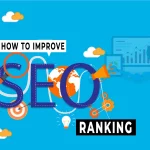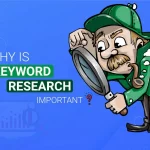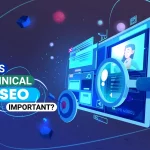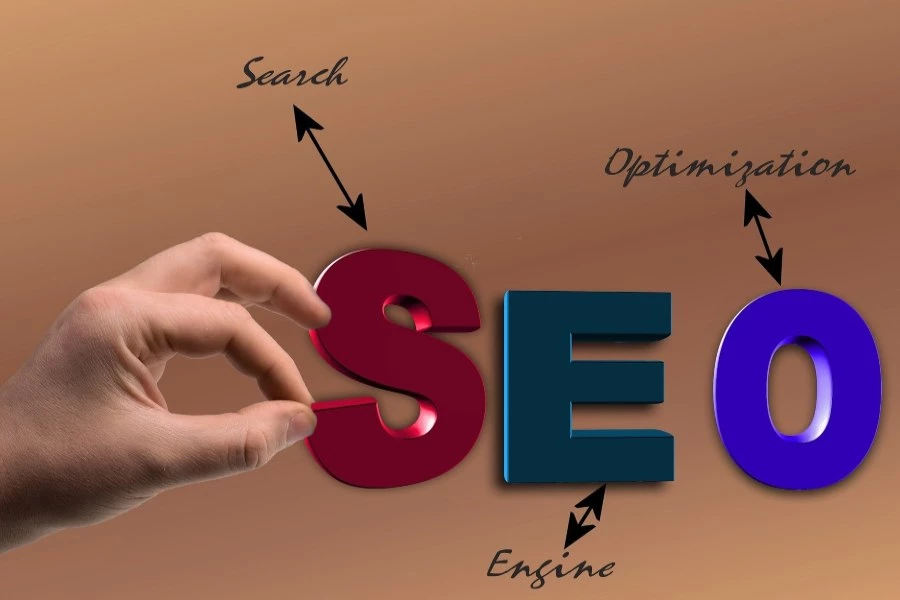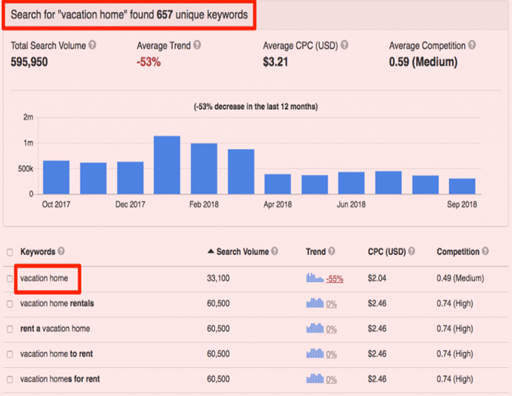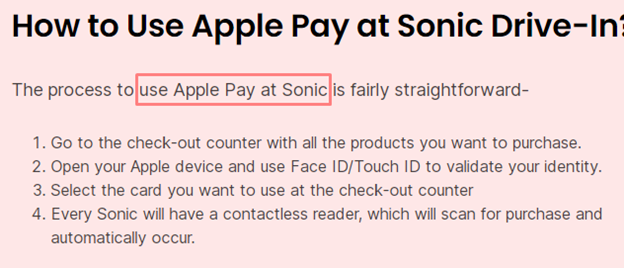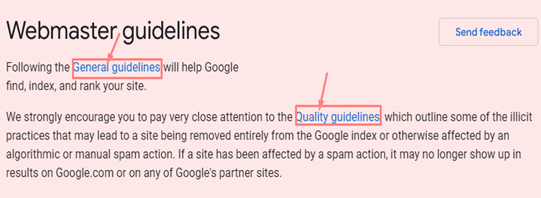Are you thinking of learning SEO but feel you’ll be wasting your time by doing so? You’re not alone!
The fact is almost every online business owner would love to learn SEO. That way, they can help their business grow online and rely less on the help of SEO agencies.
Well, if your ambition this year is to learn SEO, and you want to know if SEO is difficult, you’ll find the details you need to make an informed decision here.
Now, let’s discuss what you need to know about learning SEO.
Is SEO hard to learn?
The straightforward answer is yes, SEO is hard to learn. Why? There is so much information about search engine optimization you need to grasp.
Additionally, SEO is dynamic. It changes now and then, and keeping up with these changes can be frustrating.
However, just because someone claimed SEO is difficult doesn’t mean you can’t learn it. If you can dedicate your time and resources, you can improve your SEO knowledge in no time.
Let’s discuss the basic information about SEO beginners must understand.
What Is SEO?
Let’s start with the basics. What does SEO mean?
The full meaning of SEO is “Search Engine Optimization.” As the name implies, SEO is the changes made on and off a website to help boost search ranking, traffic and online reputation.
Two types of SEO exist. There is “On-page” and “Off-page” SEO. We’ll discuss both shortly
Why Is SEO Necessary?
SEO is important to every online business that desires growth. It not only helps boost search ranking but can increase traffic to a business online and offline.
The reason new and existing businesses pay huge attention to SEO is because it is the only effective way to boost organic traffic.
The word “organic traffic” means free traffic. It refers to the visitors that land on a website from an unpaid source.
When done properly, search engine optimization can lead to business growth. It can help you achieve your sales goal and grow your client base.
The two techniques used in SEO are called “White Hat” and “Black Hat.” However, reputable SEO agencies only use the White Hat techniques because it won’t get your website into trouble with search engines.
White Hat SEO & Black Hat SEO
You may likely hear some SEO experts use the term “White Hat” and “Black Hat” SEO.
If you have an online business and wish to hire a SEO agency, understanding what black and white hat SEO means is crucial.
What is “White Hat SEO?”
The White Hat SEO is a tactic recognized and approved by Google. In other words, Google recognizes it as a legal way to boost a website’s position on the search engine result page (SERAP).
White Hat SEO doesn’t include paid advertisement. It is organic and requires consistent effort.
Now, let’s be honest with ourselves. This search engine optimization technique takes time, though it is worth the wait.
It isn’t unethical. People who use it adhere to Google’s webmaster guidelines, and chances of getting penalized are low.
“Black Hat SEO”
In the movie, there is the “good guy” and the “bad guy”. In this case, the “good guy” is the White Hat SEO we just finished discussing while the “bad guy” is the Black Hat SEO.
The Black Hat SEO involves deploying tricks and unethical optimization practices to boost a website’s position on the search engine result page.
People don’t follow Google’s webmaster guidelines when doing Black Hat. It is also risky, as search engines may penalize the website.
This optimization strategy can get your website more traffic in record time. But does that make it a good technique? No!
Your website could get penalized or banned by search engines. So, if you don’t want to lose a website you have invested so much in building and nurturing all these years, then avoid Black Hat SEO.
Ranking a website or increasing organic traffic via White Hat SEO is the best option. It may take a while for the result to start pouring in, but it’s clearly worth the wait.
On-Page And Off-Page SEO
Now, let’s dissect these two SEO strategies.
Beginners need to understand these two optimization techniques. You may have heard it from the SEO experts working on your marketing campaign.
What Is On-page SEO?
This involves all the technical changes made on the website to boost search ranking and organic traffic. It ranges from content optimization to other technical tweaks made on the website.
Here are the 5 aspects of an on-page SEO:
Number#1: Keyword Research:
Image showing search volume and trends for keyword, “vacation home”
What is keyword research? Keyword research refers to the strategy used in finding search terms that people enter on search engines when looking for general information, products, or services.
Keyword research is important because it helps you to determine what people are searching for, including the competitiveness of the keywords. It can help guide your digital marketing plan to increase organic traffic, ranking, and visibility.
Now, how do you get the best keyword for your marketing campaign? You can use the 8 steps below to get it done.
Step#1: Carefully study your niche
Step#2: Define your goal
Step#3: Create a list of important topics: The topics should relate to your brands and should be topics (men casual shoes, best shoes for men, etc.) that you would like to rank for.
Step#4: Make a list of focus keywords: These should not only be related to the topics you have created above. They should be terms your targeted audience or visitors may use when conducting a search on Google or other search engines.
Step#5: Use effective keyword research tools: Choose a keyword tool that provides in-depth details about a keyword to help make your marketing campaign successful.
Step#6: Study the search intent: You must find out why people are using the search terms you wish to target.
Step#7: Target long-tail keywords: Long tail keywords can increase your website’s chances of ranking higher and getting more traffic.
Now, let’s continue with other aspects of on-page SEO.
Number#2: Content Optimization:
An image showing long-tail keyword
When SEO experts use the word “content optimization,” what they mean isn’t different from what you know. Content is king! But optimization makes it better.
Content optimization is writing content to ensure it targets the largest audience possible. The process includes strategically using the associated keyword in the content before publishing.
A Handy Tip: Your content needs to be 100% unique. Use bullet points to make it a breeze to read. Include images, and H1, H2, H3, etc.
Note that using header tags will help readers or visitors grasp what the content is about quickly. It will also help search engines to determine what the content is about and how well it should rank.
Number #3: Internal Linking:
An image showing internal linking
What is internal linking? It refers to any link that directs visitors and search engines from one page of your website to another page of the same website.
Internal linking is important in content optimization. Visitors and search engines use internal links to navigate your website.
Number#4: Title Tag Optimization:
The title tag is an HTML tag on the head section of a webpage. The title tag is one of the many things search engines analyze before deciding how to rank your page.
The title tag is usually written in codes, as shown below.
< title > your title here </title>
A Handy Tip: Title tags are the second most vital on-page factor in the world of SEO. Regarding little effort and big results, title tags take the cake.
An image showing title tag
In the image above, the page title tag is “12 SEO Best Practices That Everyone Should Follow –Ahrefs.”
You can see that the title tag is very crucial. It is the first thing readers, and search engines see before the main content. So, if you want to get more clicks and boost your ranking, ensure your title tag is spot on.
A Handy Tip: Note that title tags and Meta descriptions give a brief but concrete idea of what the page contains. The write-up just below the title tag in the image above is the “Meta description.”
Number#5: Page performance optimization:
How fast is your website speed? Is it fast enough? If your answer is no, you’re making a mistake that can have a negative impact on your marketing campaign.
Research has shown that online visitors are ready to wait for 0.3 to 3 seconds before losing focus and leaving a website for another.
So, even if your website looks complex and eye-catching, you’ll lose visitors if it doesn’t load fast.
Now, how do you improve website speed? Check out some tips below.
- Optimize image sizes
- Lower the number of HTTP requests
- Switch to HTTP/2
- Start using a content delivery network (CDN)
- Write mobile-first codes
- Lower the time to first byte (TTFB)
- Pick the right hosting service plan
- Enable compression
We have now come to the end of On-page search engine optimization strategies. Let’s discuss off-page SEO.
What Is Off-page SEO?
Off-page SEO is another important optimization technique to boost ranking, traffic and reputation. So, what does it mean?
Off-page SEO involves optimization efforts carried out outside the website. It involves getting quality backlinks for a website to show search engines that the website has value and authority.
Below is the diverse off-page SEO or link-building techniques.
- Email outreach
- Guess blogging.
- Broken link building
Final Thought
Now, what do you think? Is SEO hard to learn? Search engine optimization is complex but learnable. Just dedicate time and energy to it. In no time, you become familiar with the different terms and how to optimize your website.
However, the process can be time-consuming. You have to understand that SEO requires a continuous effort. It is the only way that you can rank high and retain your position.
But if you feel you can’t dedicate enough time to it, hire a SEO agency to help take care of your marketing campaign while you focus on other aspects of the business that need attention.

